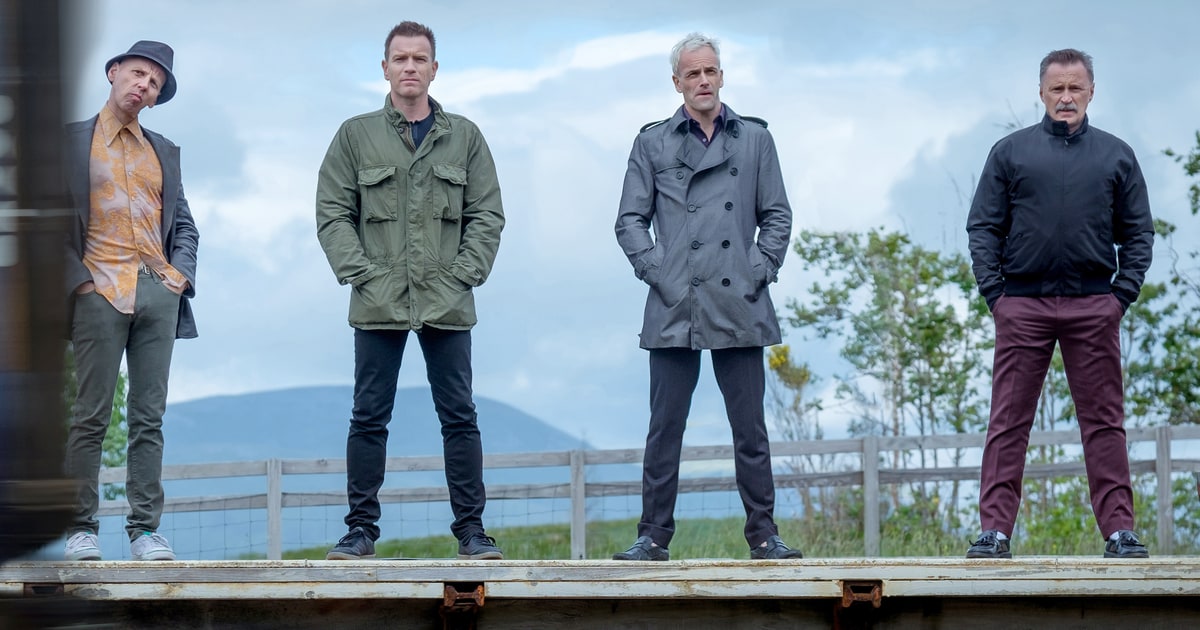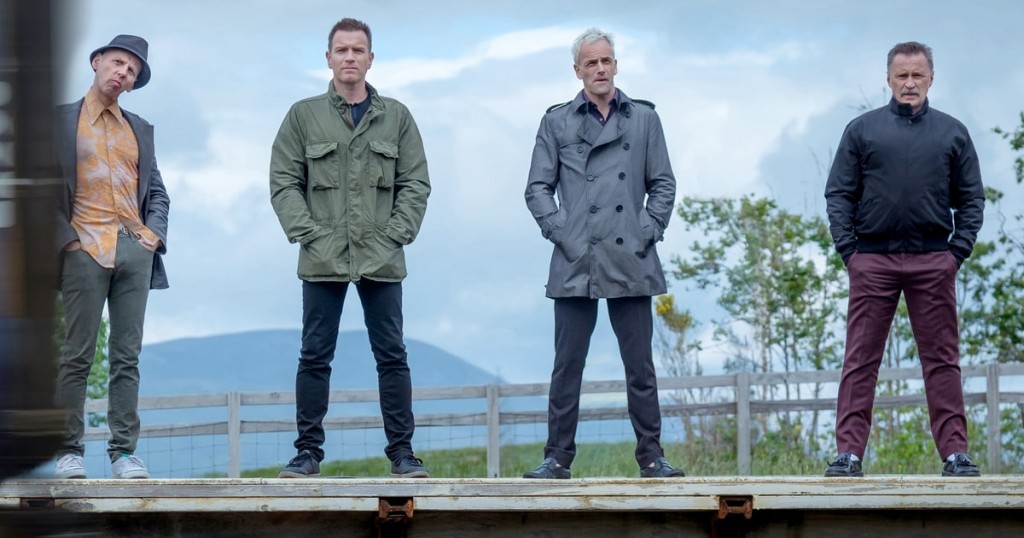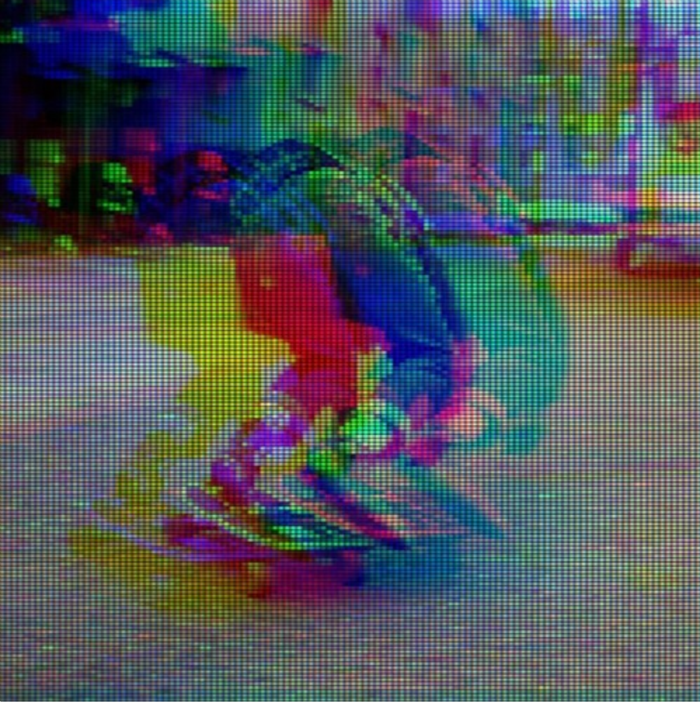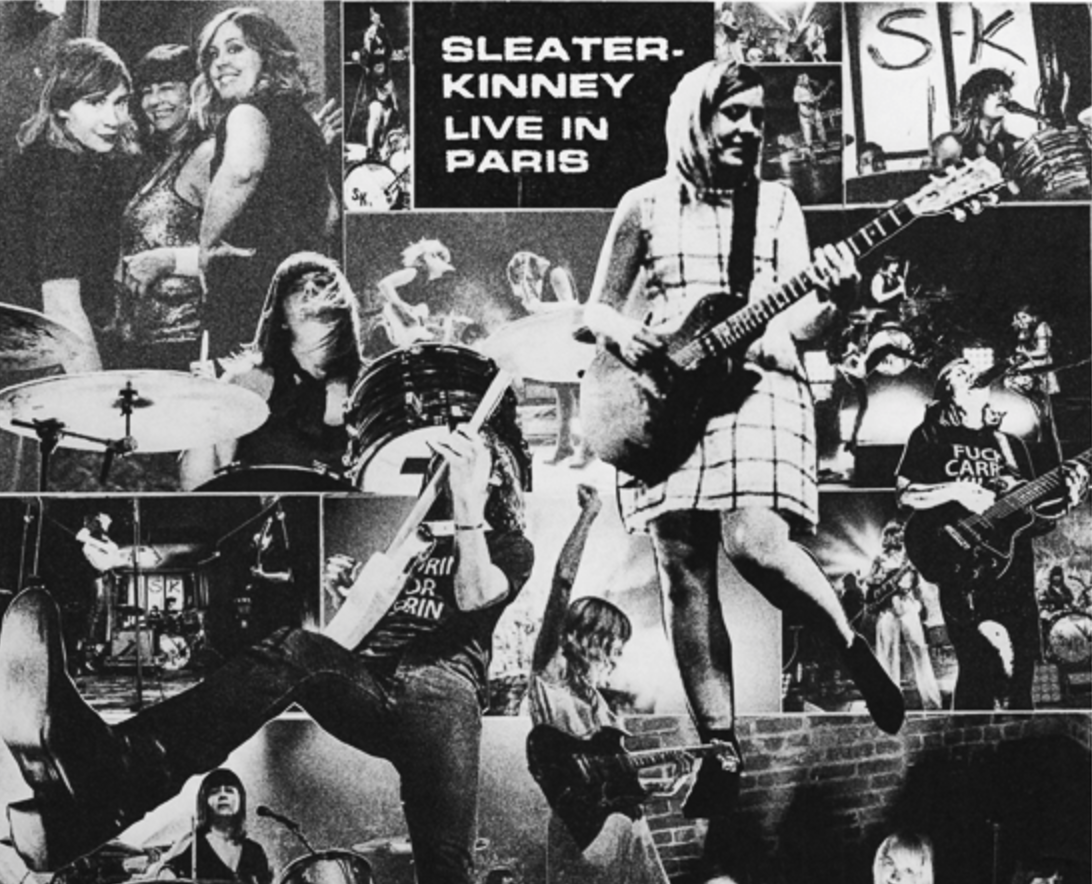Danny Boyle’s oddly-titled T2 Trainspotting is a Jonny-cum-lately [sic] sequel to the cult 1996 film. T2 picks up the threads of the saga some twenty years after the events of the first film (or T1, as I’ll call it), stitching together original elements from a screenplay by John Hodge with some bits of the novel Porno, Irvine Welsh’s sequel to his breakthrough 1993 novel.
So, having ripped off his friends and fled to the Netherlands at the end of the first film, Renton (Ewan McGregor), returns to haunt Leith, the backdrop of T1’s lurid, heroin-fuelled events. Renton presents himself as a changed man: a former addict, he says he’s now clean, and boasts of having a new family and a white-collar job in Amsterdam. Crystallising his newfound yuppie-ness is the fact that Renton is first glimpsed killing it – and very nearly himself – at the gym. But of course it wouldn’t be Trainspotting if Renton didn’t eventually get sucked back into the grimy shenanigans that gave the first film its astringent, countercultural appeal. So it is that he’s soon reacquainted with his skagboy friends Sick Boy (Jonny Lee Miller) and Spud (Ewen Bremner), along with a new addition, Veronika (Anjela Nedyalkova), Sick Boy’s girlfriend and partner in petty crime. And then there’s Begbie (Robert Carlyle), everyone’s favourite violent sociopath, whose escape from a prison hospital in T2’s early scenes is a sword that hangs precariously above Renton for much of the remainder of the film.
Yes, there are multiple strap-on-aided sex scenes; beautiful close-ups of intravenous injections; scenes depicting blackmail, scams, kickings; and yes, the audience is encouraged to revel in these even as they’re shocked by them – or even as they’re enjoying pretending to be shocked by them. T2 is, in short, hilarious, intense and compelling, the triumph that many people (myself included) had been hoping for but not exactly expecting. It’s a relief to discover so many new, memorable sequences of depravity played, as in T1, for black-comic laughs. Especially brilliant is an episode that takes place in a loyalist pub; Northern Irish audiences, in particular, will be receptive to this scene’s keen sense of how quickly the line between the dangerous and the ridiculous can become blurred. T2 also squeezes quite a lot of mileage out of gutting bourgeois pretensions, with special focus paid to the processes of gentrification that have, the film suggests, left behind swathes of Edinburgh and its inhabitants. One of the film’s key locations is a sad, practically abandoned pub, the only building still standing in a field of rubble. Boyle’s skill at framing urban decay perfectly matches Welsh’s appetite for fatalism. For viewers who have ever tried to jump through the kaleidoscopic series of hoops necessary to access unemployment benefits, Spud’s efforts to do likewise will strike a bitterly funny chord.
T2 is funny, then, but there’s a sadness to it which is easy to overlook, and which lends the proceedings a more tragic feel. The first film had sadness in spades, of course: its impressionistic segments and fleeting moments of Born-Slippy-soundtracked euphoria were offset (to a greater or lesser extent) by its depictions of lives cut short, its betrayals and desperation. T2 bounces manically between flights of fancy and grittiness, too, but its sadness is amplified with the addition of newer themes. Where Trainspotting had a vibrant, youthful cast to temper its darker aspects, then, T2 finds its protagonists in the throes of existential crises of various kinds, related to growing older and feelings of regret, resentment and nostalgia. Appropriately enough, given the characters’ fixation on their intertwined pasts, T2 doesn’t ever really leave T1’s orbit. In fact, it continually references, alludes to and sarcastically reiterates it. “You’re a tourist in your own youth”, Sick Boy tells Renton. While the same charge could be levelled at T2, this would be, I think, to give “newness” undue priority. If nothing else, T2 shows that returning to familiar ground after a period of absence can allow you to see both it, and yourself, in a new light. What you see might not be pretty, but then nostalgia ain’t what it used to be.
Sidenote: I saw T2 in a packed night-time screening, surrounded on all sides by friends and boozy, rambunctious Belfastians. Spontaneous audience participation came in the form of Rocky Horror-style shouting at the screen, cheers for certain characters and, as the credits rolled, a round of applause and a few “yeoooo”s. Far be it from me to advocate rowdiness in the cinema, but this was, for me, the perfect way to see the film. As a collective experience it really brought home the audience’s complete adoration of the original film and Welsh’s oddly loveable characters. Kevin Murray







